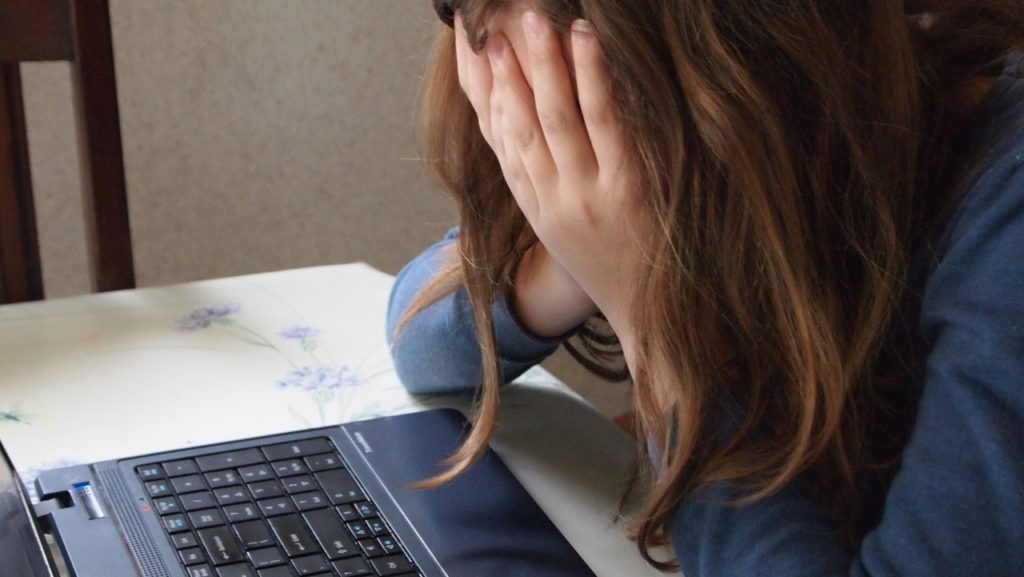Last year, 46% of 16-74 year olds in Belgium were classified as “digitally vulnerable”, lacking essential digital skills which became even more important during the Covid-19 pandemic, Le Soir reports.
Experts expected a significant increase in the rate of digital literacy as a result of the pandemic given that most of the population was stuck at home and forced to rely on e-learning, e-commerce, digital health appointments, and remote working technologies.
However, it appears that rudimentary digital skills have not developed uniformly across the country. According to the “Digital Inclusion Barometer” published by experts from Catholic University of Leuven (UCLouvain) and the Free University of Brussels (VUB), an increasing number of people are now “socially handicapped” by their lack of digital skills. In 2019, just one in three people had this problem.
The survey looked at how information and communication technologies are used by households and individuals, analysing data from Belgium's statistics agency Statbel.
In 2021, 7% of Belgians still had no access to the internet, including one in five poor households; 39% had “low digital skills.” Poor digital know-how puts Belgians at risk of falling victim to viruses, data theft, and other scams. Understandably, those most at risk are people over 55 years old. Women are also generally more vulnerable to digital crime than men.
The largest share of digitally-vulnerable people is found in Wallonia, where 49% of people fall into this bracket. In Flanders, 46% are vulnerable. Brussels residents are the most tech-savvy: just 39% are considered to be at risk. Regardless, the share of people with low digital skills is on the rise in every region, especially in Flanders.
The underlying social divide
Those with the lowest digital skills tend to be Belgians from low-income groups and those with low levels of education. This group also has the least access to so-called “essential” digital services, such as banking, health portals, government sites, or e-commerce. They have around 30% less access to these services than people from privileged backgrounds.
Although young people are the most tech-savvy section of society, they are not immune from issues relating to digital access and skills. While 90% of Belgians own a phone, one in five internet users only owns a smartphone to go online.
This means that they “do not have access to sophisticated computer tools allowing them, for example, to create a CV or to carry out administrative procedures online,” Laura Faure, researcher from UCLouvain, told Le Soir.
As technology progresses at lightning pace, there is a serious risk that some may be simply left behind. “We are seeing an increase in digital requirements in terms of uses and equipment, but not necessarily due to an increase in digital skills."
Keeping up with the times
The data shows that Belgians are struggling to acquire these necessary skills, especially with regard to digital security. This makes the public more susceptible to digital fraud.
Quentin Martens, coordinator of the philanthropic King Baudouin Foundation that commissioned the digital barometer, says the divide will feed social inequality: “The digital divide increases the feeling of abandonment and loneliness." The foundation is working to raise the digital skills of the least technologically inclined.
While digital skills are important, to prevent people slipping further into the social abyss it is vital that quality offline services are preserved. Unfortunately, offline services are rapidly dwindling across Belgium.
Between 2008 and 2020, the number of local bank branches in Belgium halved, falling from 8,300 to 4,200. Cash machines are also quickly disappearing, with 1,044 disappearing from the streets in 2019-2020. Similarly, the number of post offices and physical retail locations has plunged over recent years, accelerated by the Covid-19 pandemic.
“The most urgent thing to do is to reduce the divide in society and to maintain and develop services that are always available offline,” the King Baudouin Foundation believes.

